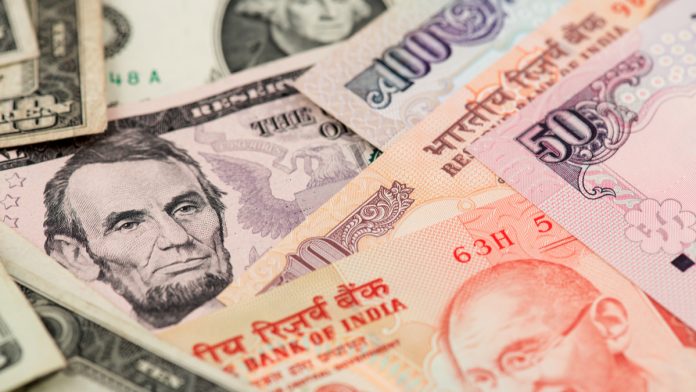- Indian Rupee (INR) falls after inflation cools
- India CPI cools to 4.7%
- US Dollar (USD) rises after losses yesterday
- US consumer confidence
The US Dollar Indian Rupee (USD/INR) exchange rose for a second straight day. The pair rose 0.23% in the previous session, settling on Thursday at 82.09. At 18:00 UTC, USD/INR trades +0.13% at 82.19 and trades in a range of 82.08 to 82.23.
The Rupee is falling after data showed that retail inflation cooled to 4.7% year on year in April, an 18 month low and well below the Reserve Bank of India’s upper tolerance band for a second straight month.
Inflation cooled from 5.66% in April, the lowest reading since October 2021 when it fell to 4.48%. Food inflation which has been a major contributor to higher prices fell to its lowest level since November 2021.
The data comes as the RBI paused rate hikes in the latest meeting after six straight rate hikes. Expectations are for the central bank to keep rate hikes on pause for the rest of the year.
The US Dollar is rising across the board. The US Dollar Index, which measures the greenback versus a basket of major currencies, trades +0.57% at the time of writing at 102.6, rebounding from losses yesterday.
The US dollar is rising despite US consumer morale tumbling by more than expected as worries about the US economy rose. According to the closely watched Michigan consumer sentiment index, confidence fell to 57.7 in May, down from April’s 63.5, its lowest level this year, amid renewed concerns of a recession.
Despite the weaker data, the market continues to re-price Federal Reserve rate cut expectations. While the market had been pricing in several rate cuts by the end of the year, the Fed had been pushing back against those expectations.
Meanwhile, concerns over the US debt ceiling failed to pull to the US dollar lower. A meeting between congressional leaders has been pushed back to next week, raising fears that an agreement may not be reached. Failure to reach an agreement could see the US default on its debt obligations, which, as Treasury Secretary Janet Yellen warned, could have catastrophic economic consequences.





